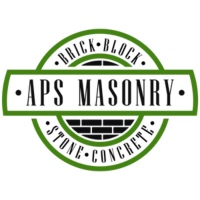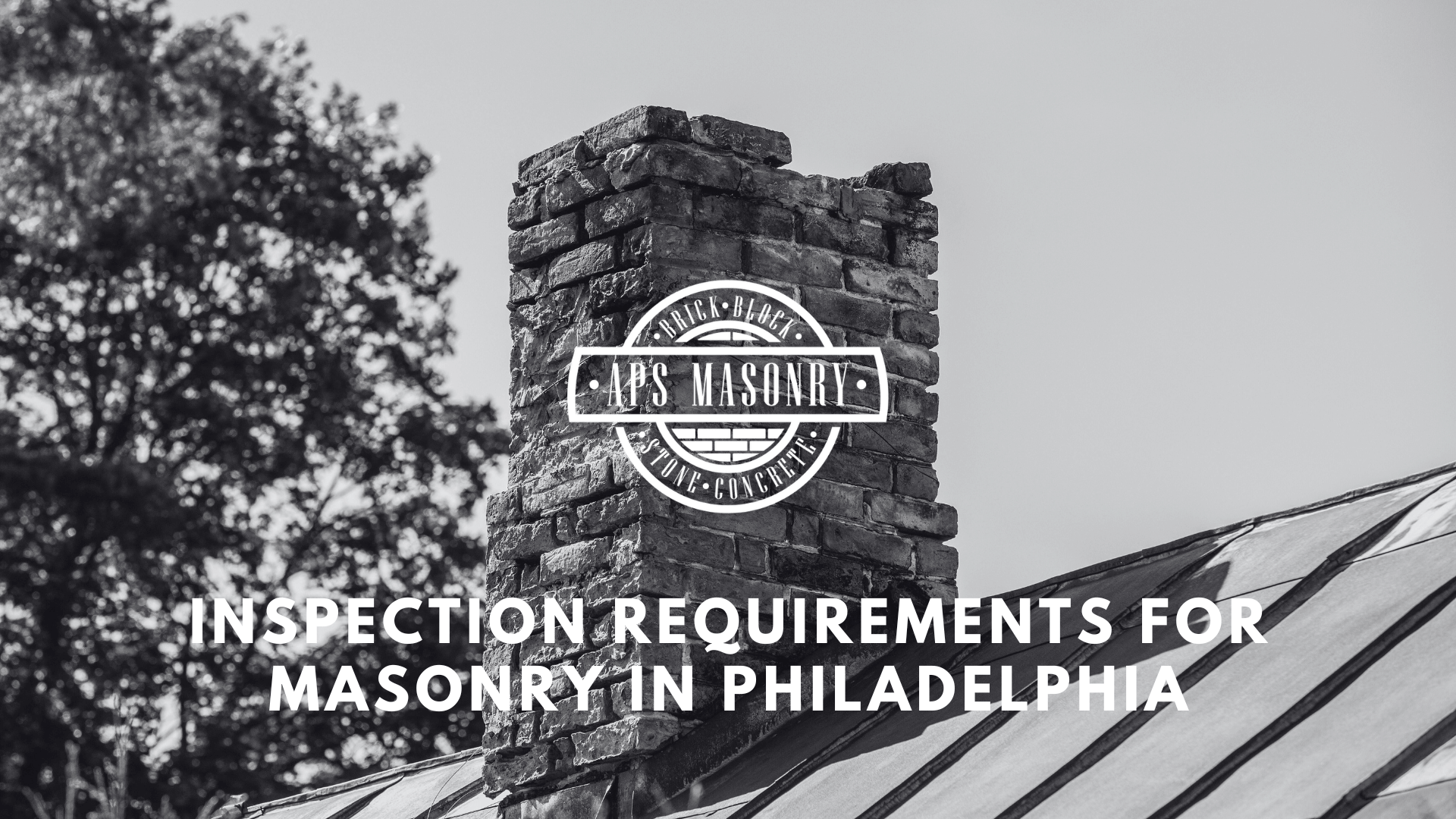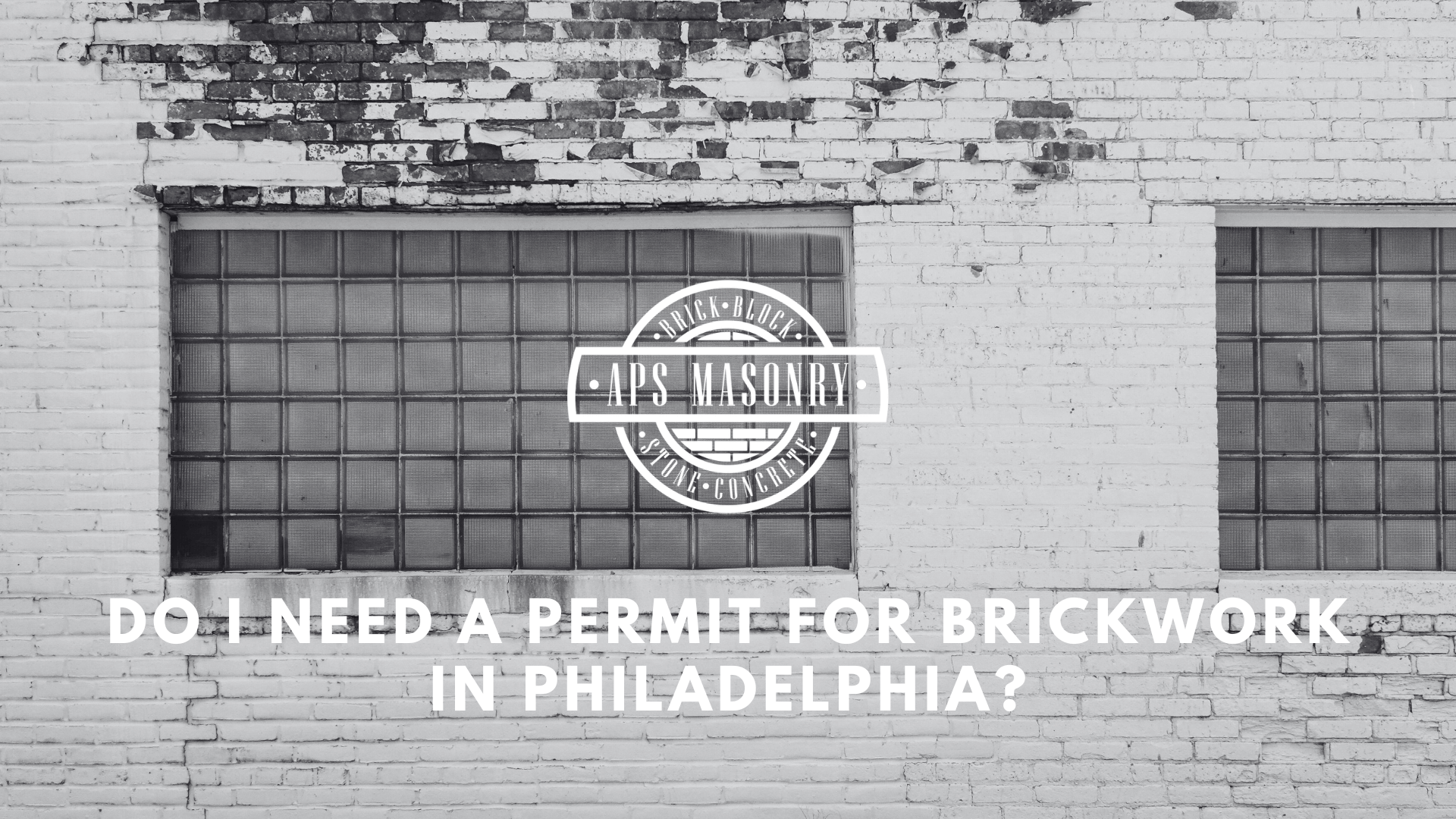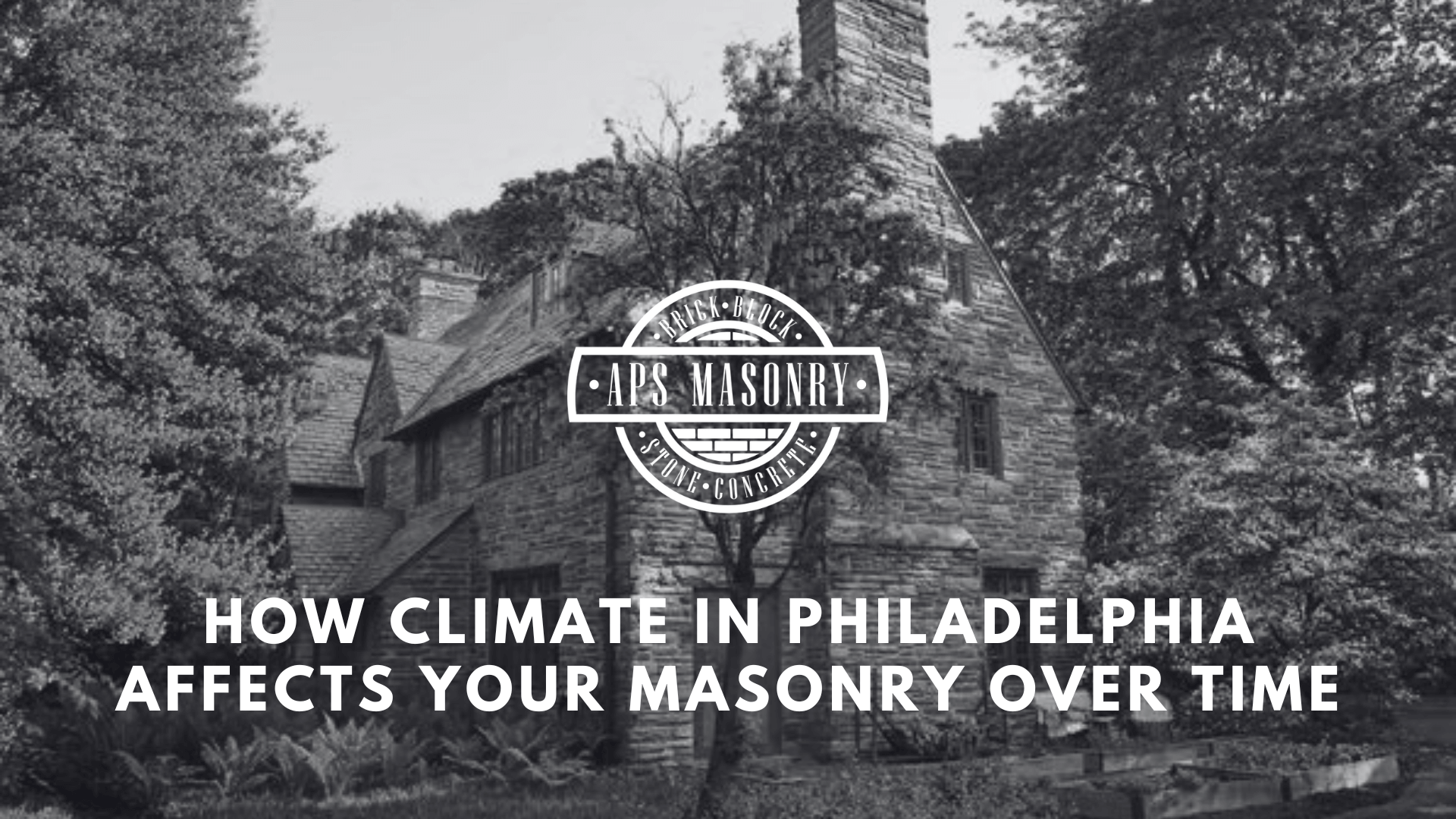Do I Need a Permit for Masonry in Philadelphia?
Getting masonry work done in Philadelphia isn’t as simple as hiring a contractor and breaking ground. If you're building steps, repairing a facade,...
6 min read
 Alec Serowatka
:
Jun 30, 2025 1:56:03 PM
Alec Serowatka
:
Jun 30, 2025 1:56:03 PM

For most Philadelphia building owners, masonry inspections feel like just another line item—another fee, another delay, another department asking for paperwork.
It’s understandable. You're already investing in materials, labor, and a building permit—so having to schedule and pay for an inspection might feel like overkill. But think of it like this: we expect surgeons to recertify, pilots to undergo simulator checks, and electricians to be licensed. Why? Because these roles carry high risk, and public safety depends on the integrity of their work. Masonry inspections follow the same logic. In a city like Philadelphia, where many buildings are older and densely packed, the inspection requirements for masonry in Philadelphia prevent dangerous conditions long before they cause damage or injury. These inspections are mandated by the city’s Department of Licenses & Inspections, and their job is to verify that work complies with the building code, is structurally sound, and doesn’t put others at risk.
A masonry inspection is required in Philadelphia under any of the following conditions:
You’re submitting a building permit application that includes work on structural elements, such as exterior brick walls, lintels, or load-bearing masonry.
You're repairing or modifying existing wall surfaces where observed distress (cracking, bulging, or displacement) may indicate structural compromise.
The project involves anchoring or modifying building service equipment, such as electrical conduit, gas piping, or related equipment embedded in the masonry.
The work involves more than 500 square feet of masonry surface area or includes the addition of structural supports for balconies, entrances, or façade cladding.
You’re completing work that impacts an existing structure’s ability to support weight, resist moisture intrusion, or remain stable—conditions regulated by the Philadelphia Code.
In most cases, this initial inspection must occur before any demolition, replacement, or repointing can begin. Inspections are also mandatory as part of an approved repair and maintenance program, especially for older properties or buildings with known façade deterioration.
The City of Philadelphia’s Department of Licenses & Inspections typically flags these inspections during the permitting process. If they’re missed or delayed, your permit will not advance, and you risk job site shutdowns or fines. At APS Masonry, we review your scope of work before submission to ensure you meet the city's applicable provisions and inspection criteria up front—saving you from mid-project disruptions and added costs.
For most Philadelphia property owners, especially those with rowhomes, twins, or single-family dwellings, masonry inspections aren’t about annual checklists or massive compliance reports—they’re tied directly to building permit approvals, safety complaints, or visible deterioration. These inspections focus on specific structural components, the work being performed, and whether the repair meets the city’s building code.
Exterior Wall Conditions
Inspectors look at brickwork, block, or stone for cracks, leaning, bowing, or spalling that could indicate compromised structural elements or moisture infiltration.
Mortar and Joint Stability
The inspector checks for failed mortar joints, excessive tuckpointing depth, or improper materials that could affect the wall’s load bearing capacity or violate referenced standards.
Safety Impact of Existing Work or Damage
If the wall faces a public sidewalk or shared boundary, any potential hazard triggers an automatic need to perform repair work or halt ongoing construction until issues are resolved.
Permit Scope and Documentation Review
The inspector confirms the repair matches what was outlined in the building permit and checks for accuracy in the first report, if required for more extensive repairs.
Job Site Access and Visibility
Inspectors verify that the work area is safe to access and fully visible. Portions of walls that do not remain accessible due to fencing, landscaping, or scaffolding may delay approvals.
Review of Who’s Performing the Work
Work on structural elements must be completed by a registered, licensed contractor. The inspector may confirm this against permit records to ensure the responsible party meets the city’s regulations.
Special Cases: Taller Buildings and High-Risk Properties
If your building is six or more stories or exceeds 60 feet, you fall under Philadelphia’s stricter facade inspection program. These inspections must be handled by a professional engineer or design professional, reviewed by a special inspection agency, and submitted under the city’s administrative code. These aren't one-time visits—they’re recurring periodic inspections with specific reporting requirements and procedures set by the city. If that’s your property, APS can refer you to qualified engineers and handle the masonry portion of any repairs required after the evaluation.
For the average homeowner, a masonry inspection may only happen once—but it determines whether your project gets approved, halted, or flagged for unsafe conditions. APS Masonry ensures your project is ready before that visit even happens—because when it comes to passing inspection, preparation is everything.
Once the inspector leaves, the clock doesn’t immediately start on your project. Their findings are submitted to the city department for review, and if you're working under a permit, your job cannot proceed until the inspection is cleared. Here’s what happens next—and what the building owner is responsible for:
First Report Submission
The inspector files a formal report that shall include the following: all observations, a safety assessment, and a compliance determination based on referenced standards and procedures set by the city.
Condition Rating
Properties are rated Safe, Unsafe, or Safe With a Repair and Maintenance Program using a defined rating system. Unsafe conditions halt all work until corrected; the other two ratings may require ongoing documentation.
Timeline and Follow-Up
If repairs are required, the time frame for making them is assigned in writing. In most residential cases, owners have 30–60 days. Emergency issues (falling bricks, visible wall displacement) demand immediate correction.
Permit Impacts
Projects tied to a building permit are paused until the inspection is approved. Incomplete reports or missed reporting requirements can delay approval by 1 to 3 weeks and may trigger additional inspections.
Long-Term Requirements
Completed reports must remain accessible for future reference. Inconsistent documentation can interfere with permit renewals, future property sales, or insurance claims.
Even when building owners follow the permit process correctly, masonry inspections often uncover issues that result in failed reports, stalled approvals, or emergency repairs. In Philadelphia, these failures typically fall into two categories: issues within the owner’s control, and problems caused by aging infrastructure or past construction shortcuts.
Most frequent inspection failures include:
Cracks or separation in exterior walls and façade materials caused by settling or improper anchoring
Poorly executed prior repairs using non-compliant materials or methods not aligned with referenced standards
Damaged or corroded structural supports, particularly in older buildings lacking regular maintenance
Inadequate load bearing capacity of lintels or decorative masonry that has become structurally active
Blocked or inaccessible inspection areas—violating the rule that all inspected areas must remain accessible
Missing documentation or improperly filed first report that doesn’t meet the city’s reporting requirements
Some failures also stem from inspection scheduling breakdowns—when procedures set by the city aren’t followed or a special inspector isn’t involved where required. Delays in performing mandated repairs within the approved time frame also lead to rejections, especially if updates are not logged in accordance with Philadelphia’s administrative code.
At APS Masonry, we don't wait for the city to flag problems—we identify them first. Our team works closely with design professionals, special inspection agencies, and structural engineers to ensure your building meets or exceeds all applicable provisions and building code regulations.
We:
Conduct our own pre-inspection walkthroughs to assess probable failure points
Provide detailed documentation for permit packages and construction timelines
Repair and reinforce structural elements using approved techniques and materials
Maintain full records for every repair to keep your original schedule intact and avoid resets on future periodic inspections
If you're a property owner in Philadelphia managing masonry repairs or façade work, failing an inspection is a headache but also a risk to your timeline, budget, and your building’s safety. APS Masonry Contracting gets your work done right the first time, fully compliant with city regulations, and ready to pass inspection without costly surprises.
Contact APS Masonry Contracting today to schedule an evaluation or consultation. We'll help you meet Philadelphia’s masonry inspection standards—and exceed expectations.
Even if your permit only covers a specific section—like repairing front steps or repointing bricks—inspectors can review a representative sample of the entire building facade. If they see issues like bulging, cracks, or movement in nearby areas, they have the authority to expand the physical inspection. Their job is to protect public safety and ensure no overlooked conditions pose a risk to the general public.
During an inspection, the city uses the building code, referenced standards, and professional structural engineering benchmarks to determine compliance. The following criteria typically apply: material quality, alignment with permit drawings, structural stability, and whether the work introduces any new safety risks. It’s not just about how the work looks—it’s about whether it holds up safely under load and meets code.
Yes. If an inspector sees probable cause that other parts of your home—beyond the permitted repair area—have undergone unauthorized work, they can inspect those areas too. Even if only a portion thereof of the wall was included in the original permit, the building owner is responsible for the safety of all visible conditions. Such work can trigger stop-work orders or require a retroactive permit, especially if it violates structural or safety codes.
While most home masonry repairs are straightforward, certain projects involve special requirements—like working on party walls, historic facades, or structurally sensitive areas. In these cases, the city may require a special inspection or involvement from a licensed design professional to verify compliance. Even in smaller homes, if structural loads or anchoring methods are altered, the added oversight helps ensure the work is safe and up to code.

Getting masonry work done in Philadelphia isn’t as simple as hiring a contractor and breaking ground. If you're building steps, repairing a facade,...

Avoid fines, delays, and red tape—APS Masonry Contracting handles your Philadelphia brickwork permits so you don’t have to.

Philadelphia’s climate applies constant pressure to masonry. Cold, rain, snow, heat, and humidity don’t just age a building—they reshape it.